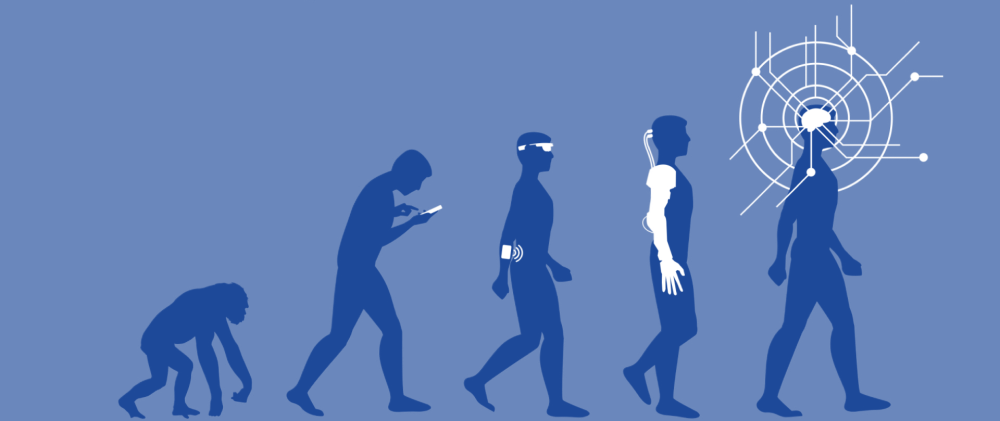AI & Quantum Computing: Where Technology Is Leading Us

Technology has always played a key role in humans’ history, influencing significantly every aspect of our lives: how we interact, work, travel, and so forth. It is particularly true if we consider last 50 years, from the onset of the personal computer to the latest edition of smartphone. Let’s think about our daily routine: we chat with friends and acquaintances through emails and texting apps, we work on hi-tech devices, we control our medical tests on a mobile, we share our moments on social media, we reach a place calling an Uber or book a flight with an app, we purchase via e-commerce whatever we wish and it’ll be at our home right away, and so on with hundreds of tools and business models which leverage technology.
The more you think about it, the more you feel like technology had reached a sort of saturation, both from a market perspective – which other business models could rely on technology? – and also considering services to be offered – what other tasks can be improved by technology?. Namely, what’s next? What has technology left behind?
Without any doubt, technology spread out hugely: from the most important tasks to the trivial ones. Despite of this, next level is around the corner. In fact, as Carl Eschenbach – partner at Sequoia Capital – highlighted during one of his last speech [1], even though it’s not easy to point out how exactly technology will affect humans’ lives and which industry will substantially employ it, it’s unavoidable to bear in mind the new big trends, e.g. Big Data, Cloud Computing, Artificial Intelligence (AI), Quantum Computing, etc. Each of them will be key in the near or far future.
Two of the most notable, AI and Quantum Computing, can be taken as examples to best point out what direction technology will pursue.
[2] Artificial Intelligence concerns machines that are able to act like humans do. They can (somehow) think, be creative, learn. Within AI, there is another key issue that will shape technology’s future: machine learning. It permits to program machines so that they think and learn from experience exactly like we do.
AI applications are wide, ranging from customer service improvement to fraud detection, from managing workload of an organization to Apple’s Siri that explains how is going to be the weather tomorrow. [3] A particularly interesting usage of AI concerns precision medicine, i.e. disease treatments which consider the different characteristics of each person. Nowadays same diseases lead to same treatments – no matter the patient – whilst thanks to AI if you have the same type of cancer as another individual, likely you will have a different treatment, which best fits with your own traits.
Huge advances in AI (and machine learning) will be also provided by quantum computing. [4] Basically, there are some big issues that today’s computers – although powerful – cannot deal with, due to the fact that making transistors smaller isn’t possible with current technology (Moore’s Law isn’t more reliable) [5] and computers are based on bits 0/1, which may represent just two states. Furthermore, nowadays issues are more complex than decades ago since, for instance, we can now collect thousands of data points. So, a new generation of more powerful computers is needed.
They are called quantum computers. These devices – instead of bits – use quantum bits (qubits), which can be in more than one state at time, so that complex decisions from a huge amount of data can be taken rapidly.
As Vern Brownell, CEO of D-Wave Systems, world’s first quantum-computing company, explains [6] – quantum computers can cope with significant problems that concern, for example, appraising portfolio risk decisions or finding new medicines to fight cancer.
To sum up, up to now hasn’t been easy to state precisely where technology will lead us, but certainly we are at the dawn of a new, great technology wave, whose main aims go beyond customers’ daily needs towards tremendous life and work problems.
In particular, AI and Quantum Computing can show us that technologies are going to get two of the most important humans’ features they have never had: intelligence and autonomy. We have to be conscious of this and face them as means to enhance opportunities rather than problems which negatively disrupt our status quo.
Sources:
[1] Carl Eschenbach, partner at Sequoia Capital, 6/29/18 lecture at Stanford for Leading Trends in IT (MS&E 238) Course
[2] https://www.bernardmarr.com/default.asp?contentID=963
[3] https://www.weforum.org/agenda/2017/05/artificial-intelligence-will-change-the-world-heres-how/
One comment on “AI & Quantum Computing: Where Technology Is Leading Us”
Comments are closed.



Hi, Alberto.
AI and Quantum computing has an amazing potential. Especially, I’m interested in quantum computing. It’s data process speed is incredible. But the commercialization of the next technology is quite difficult. I hope someday quantum computer is everywhere and makes the world better.